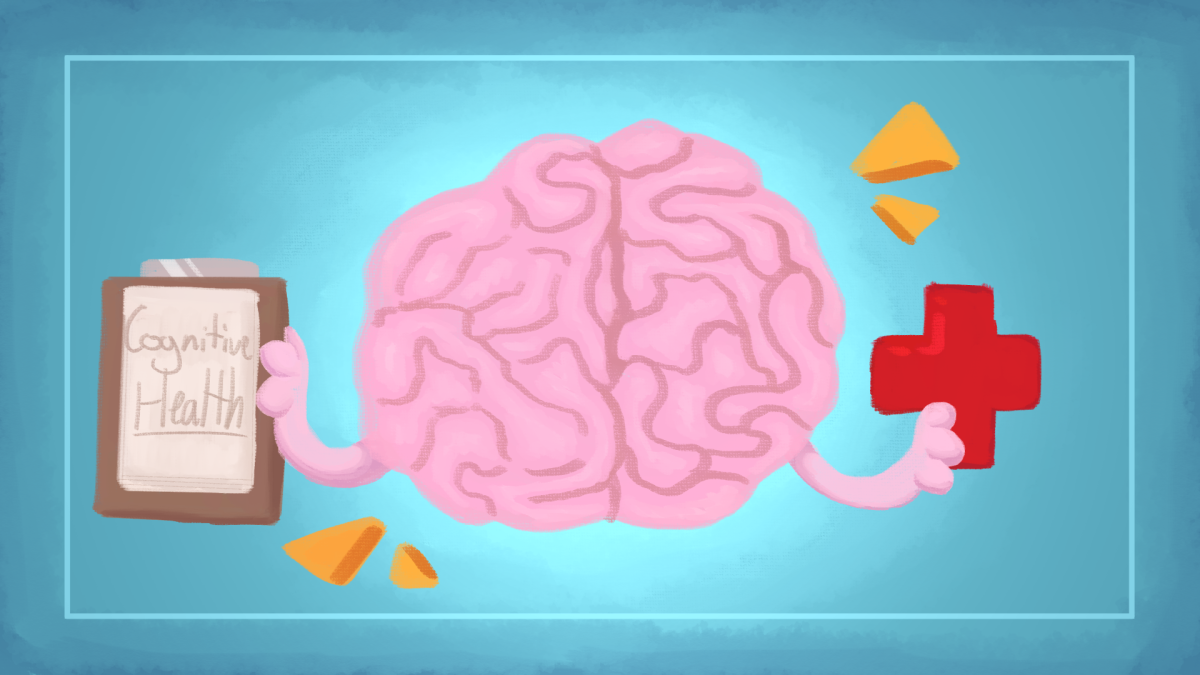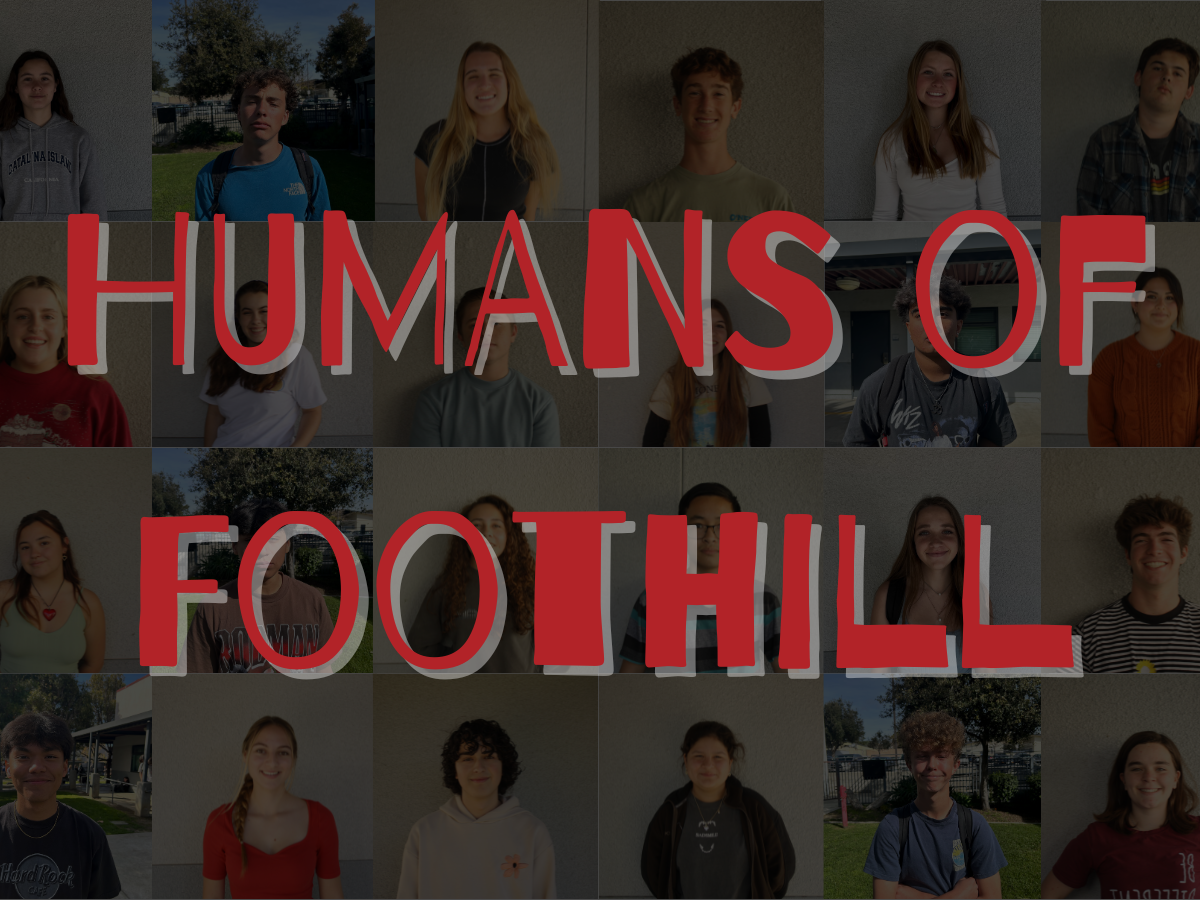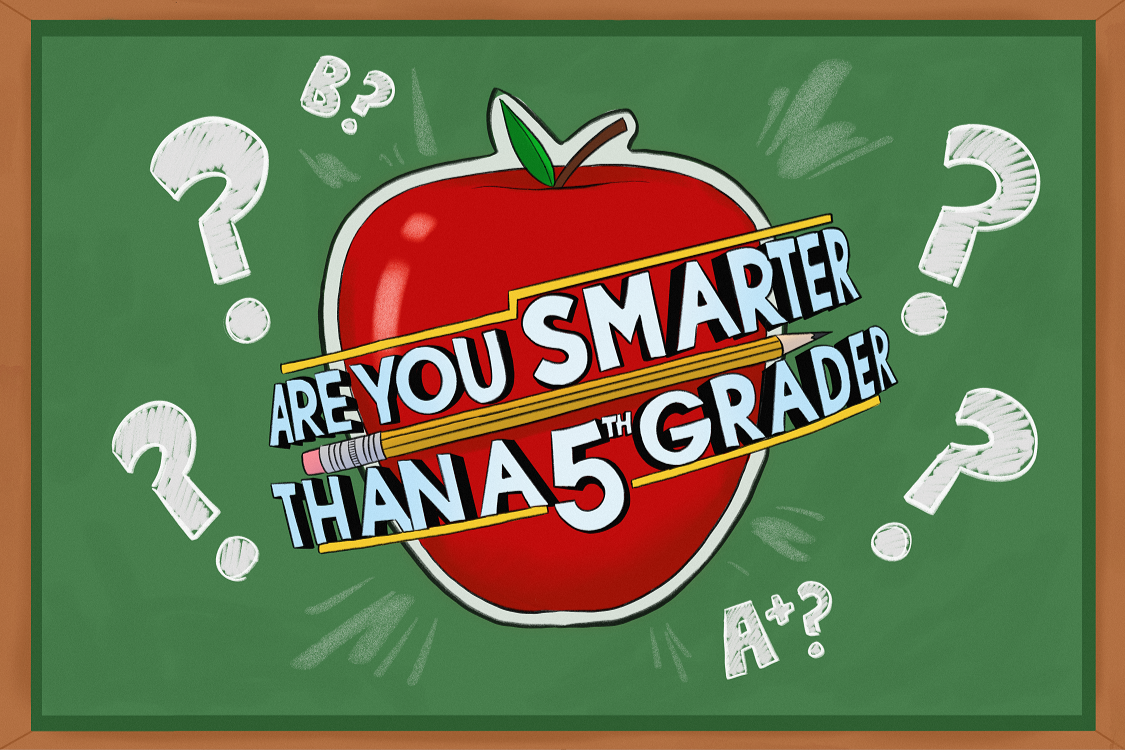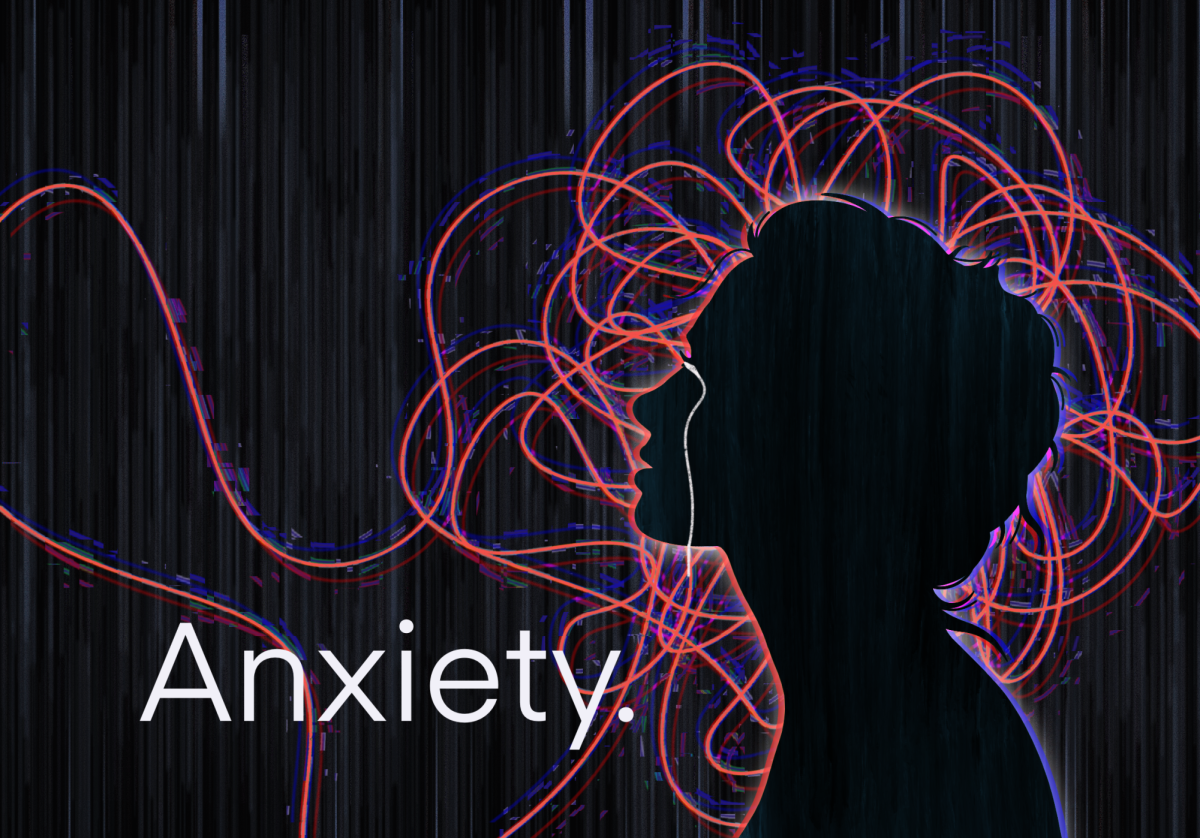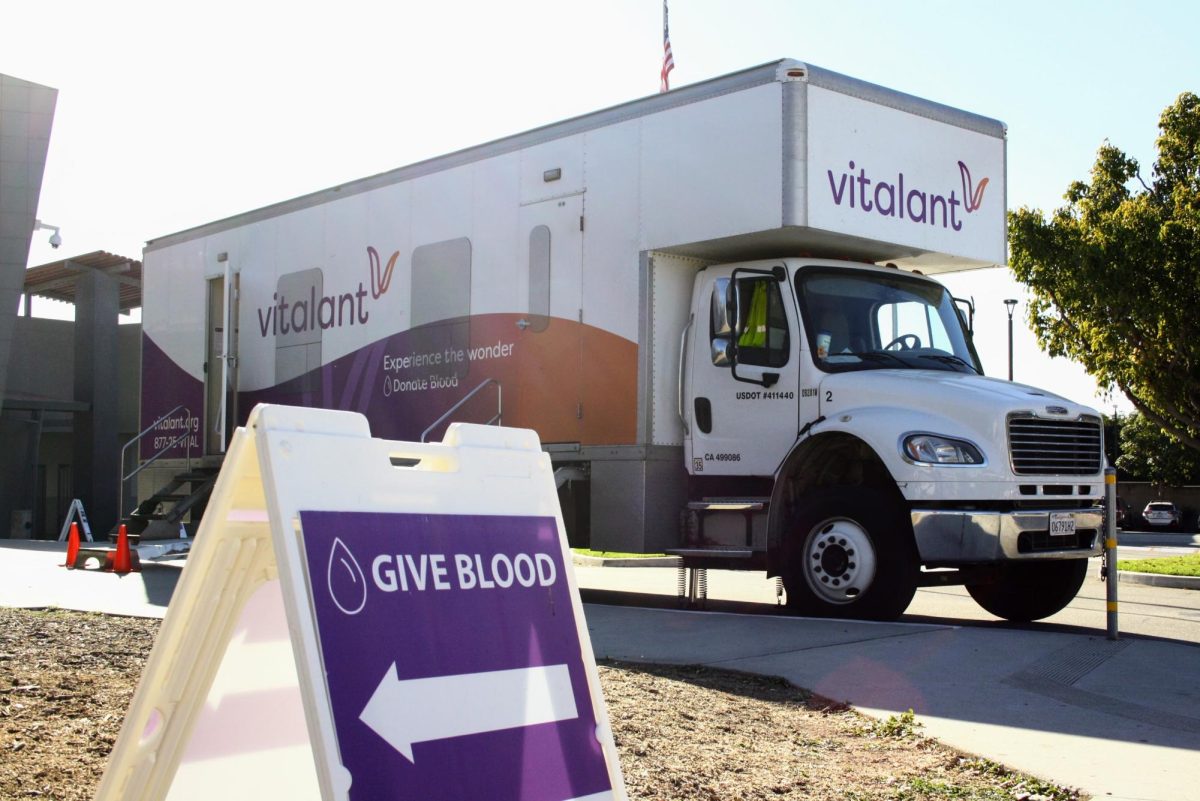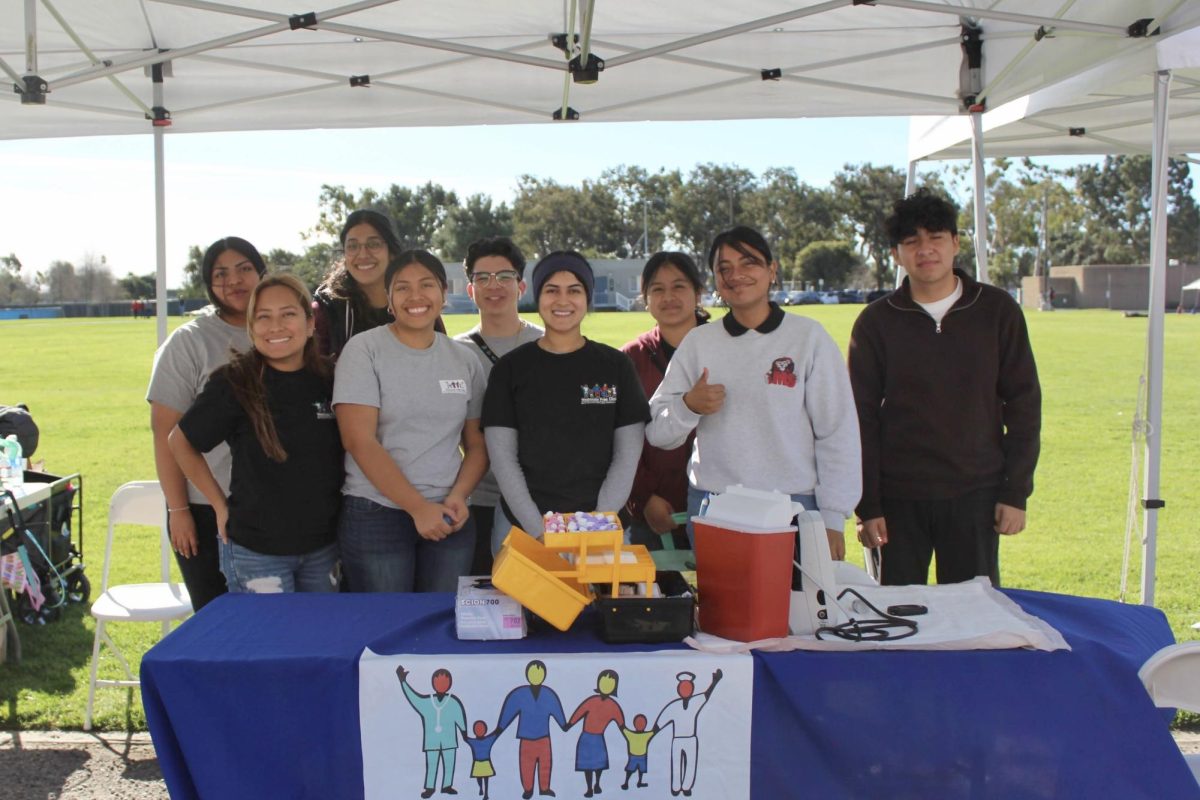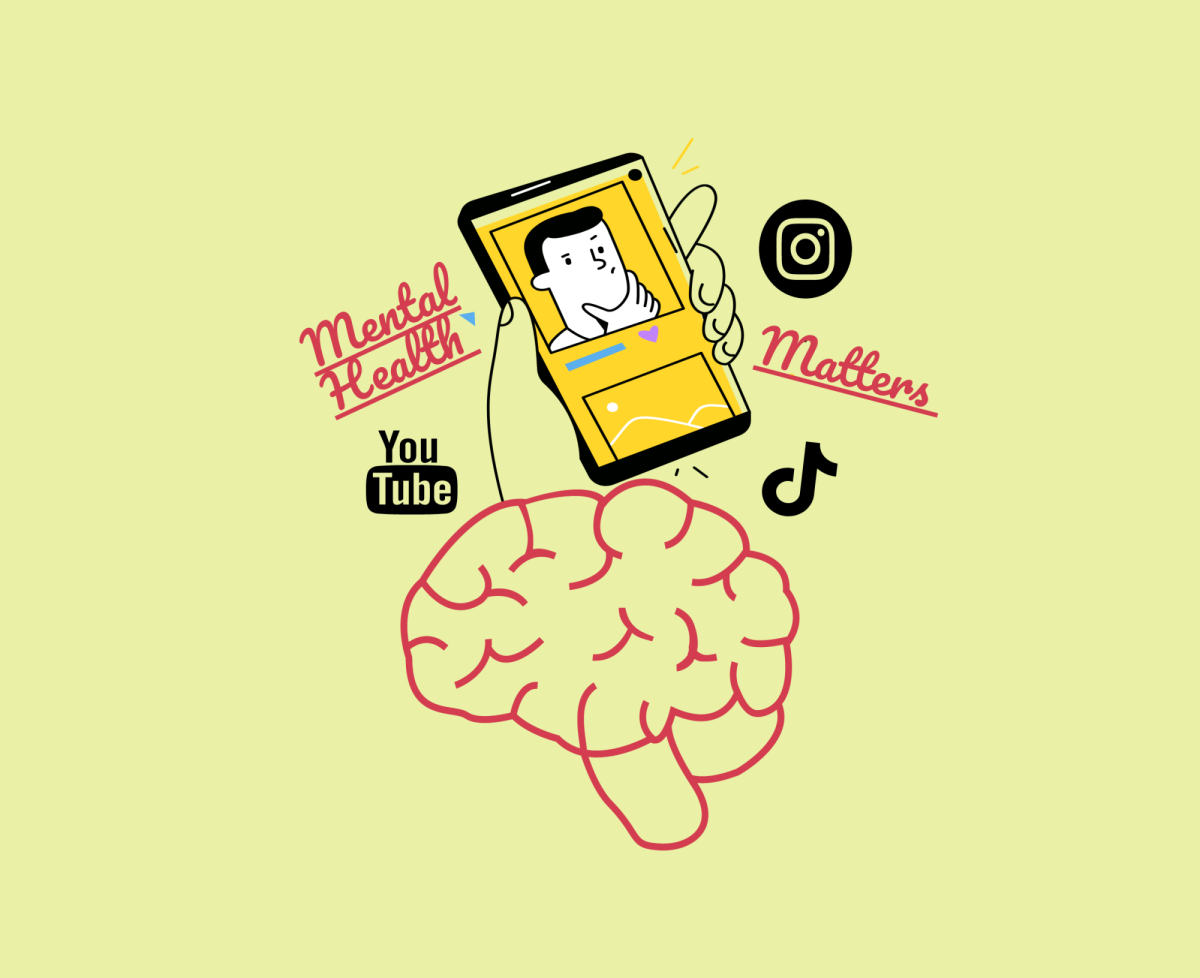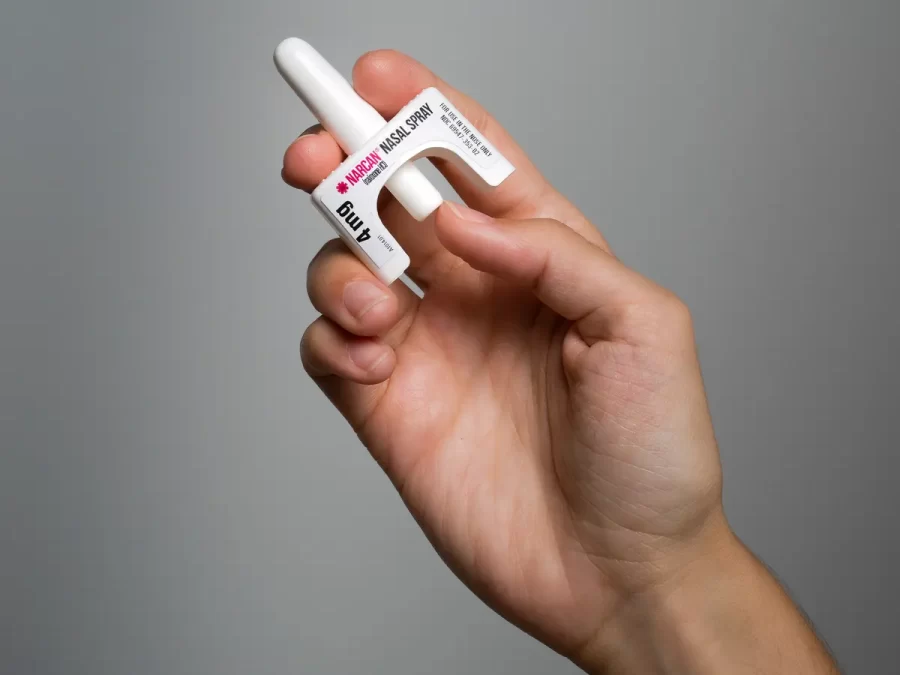Did you know that we only use 10% of our brain? The bigger your brain, the smarter you are? You can’t grow new brain cells, and everything is completely hopeless once you show any sign of forgetfulness. Oh, and by the way, video games turn your brain to mush.
Just kidding.
There are dozens—probably hundreds—of myths (many of which we still believe) about the 3.3 pounds of fat, salt, protein, carbohydrates and water we call our brains. Worth 1/40 of the average human’s body weight, the brain is not at all a complete mystery. Many technological advancements have been made regarding this intricate organ that influences the way we think, the way we feel, the lives we live and the people we are. More importantly, this progression of medicine is used to investigate the important issue we know as cognitive decline.
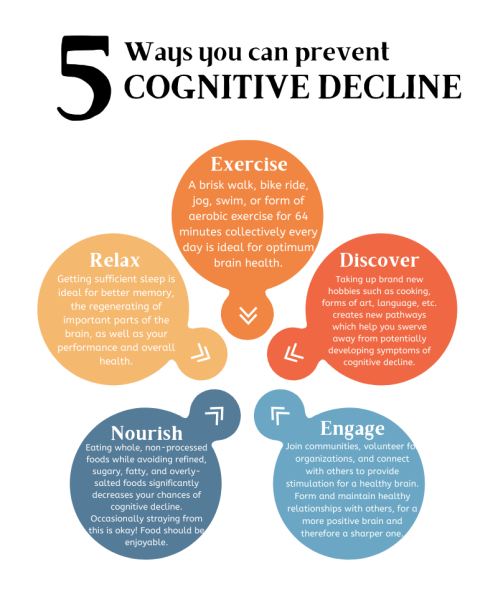
Dementia. We’ve heard this term before and even interchangeably used it with Alzheimer’s in the past. However, dementia and Alzheimer’s aren’t the same thing. Dementia is clinically known as an umbrella term for multiple diseases (such as vascular dementia, Lewy body disease, frontotemporal dementia, etc.), whereas Alzheimer’s pertains to a singular condition under the umbrella of dementia. Although these two words are often associated with memory loss, they contain exhaustive lists of other neighboring symptoms, some of which may be found to be quite surprising. There are currently six million people living with dementia, and this number is predicted to grow up to 13 million by 2050. One in three senior citizens die with Alzheimer’s or another dementia—a ratio higher than deaths associated with breast cancer and prostate cancer combined. Good news is, well under 7 percent of our life spans are determined by our genes—meaning that over 90 percent of it is in our control. In short, there is no excuse. The things we do and the habits we make are what matter.
And what better time to start than now? Here are five simple habits you can adopt to eradicate your chances of cognitive decline.
Move
At the top of nearly every disease prevention list comes exercise. According to the Center of Disease Control and Prevention, 80% of Americans don’t meet the basic requirements for exercise. Even though the body begins to break down with age, the requirements are still able to be met with zero impact on the body. Moreover, exercise improves memory and reduces high blood pressure associated with depression and anxiety. Not to mention the fact that exercise tops the list for cancer prevention and a plethora of other diseases. 64 minutes per day of any aerobic exercise that could be as simple as a bike ride, swim or brisk walk in zone two cardio is ideal. This is just a small portion of your day, and it can lower your chances of developing dementia by 30% and Alzheimer’s by 45%.
Discover
Second on the list comes the act of discovering. As originally put by American neurosurgeon, writer and medical reporter Dr. Sanjay Gupta in his novel “Keep Sharp: Build a Better Brain at Any Age,” “If you think of your brain’s networks like a series of roads, then you can see how the more networks you have, the more options are available to shift direction and arrive at the same destination if one road becomes impassable.” Regardless of age, constantly engaging in stimulating activities creates more neural pathways to swerve from the dangerous “roads” obstructed by proteins linked to cognitive decline. This can include taking up new hobbies such as cooking, painting, learning new languages and learning new instruments. Discoveries have even gone as far as the potential for video games being used for medicinal purposes. Furthermore, those who have reached the generativity stage in Erikson’s stages of development, in which one finds a sense of purpose and something to do after retiring from their main careers, will have significantly reduced chances of exhibiting signs of cognitive decline.
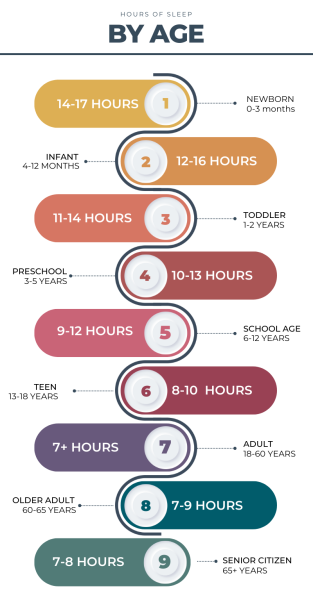
Relax
Next is something many people struggle with: sleep. As also explained in Gupta’s book, those who brag about how well they can function on just four hours of sleep a night don’t know what they are talking about. “Lack of sleep is not a badge of honor or sign of integrity.” He wrote, “If you think rising at 4:00 a.m. after going to bed at midnight will make you successful, think again.” Humans naturally operate on the circadian rhythm, also known as your internal clock. If this clock is disturbed, the effect will lead to higher chances of cognitive decline. If you are feeling hungry before bed, you know you need to shift your sleep habits to the appropriate amount for an ideal night’s rest (see infographic). Your brain is encased in cerebrospinal fluid, which cleans out junk from the hippocampus (the memory hub located at the center of the brain.) If you don’t get sufficient sleep, harmful proteins and other “brain trash” will not be able to be drained, resulting in a considerable increase in chances of cognitive decline. So, turn off your phone 30 minutes before bed and take some time to wind down. Mediation is also not a terrible idea.
Nourish
Fourth on this list is nourishment. Maintaining a healthy diet is something everyone has heard of many times, but that doesn’t necessarily mean they put it into practice. According to an article published by Dr. JoAnn Manson of Harvard and Dr. Scott Kahan of Johns Hopkins, just 12% of doctor office visits include nutrition counseling. Unfortunately, people get much of their nutritional advice, such as strict diets, from invalid sources like social media—the ultimate power tool for spreading misinformation. To resolve this, people should adopt a healthy way of eating catered to meet their needs while allergies and personal health conditions are also being taken into account.
“Keep Sharp: Build a Better Brain at Any Age” further explains, “[T]humbs up for vegetables (especially green leafy ones), nuts, berries, beans, whole grains, fish, poultry, olive oil, and, for those interested, wine; thumbs down on red meats, butter and stick margarine, cheese, pastries and other sweets, and fried or fast food.” Prior to this statement, Gupta praised the Mediterranean diet, which holds a great set of guidelines to reference when considering how to construct your own dietary regime. “Can I ever stray from my personal diet?” may be a completely valid question running through your head. “Food should be a source of nutrition, yes, but it should also be a source of enjoyment,” Gupta explains. “I go out of my dietary lane from time to time and have no guilt when I do. Guilt is bad for the brain, and too much of it makes you lose your sharpness.”
Connect
The fifth and final secret to keeping a healthy brain and avoiding cognitive decline lies in social connection. Those who engaged in social interaction—whether that be in leisure or intellect—and were in higher interpersonal and social demands showed a much lower risk of developing dementia than those who weren’t. Finding volunteer work at any age, attending social events and forming meaningful connections with people you meet is a good way to find the engagement that will bring you healthful benefits.
The twisted, crinkled mass of pink squishy stuff floating inside our skulls is worth more than you think. With recent advancements in research and medicine, the human brain is becoming less of an unsolved mystery and more of something we are learning on how to preserve and care for. Don’t be afraid of what could happen. Be inspired to build and maintain a sharper brain, and thus, a better you.


